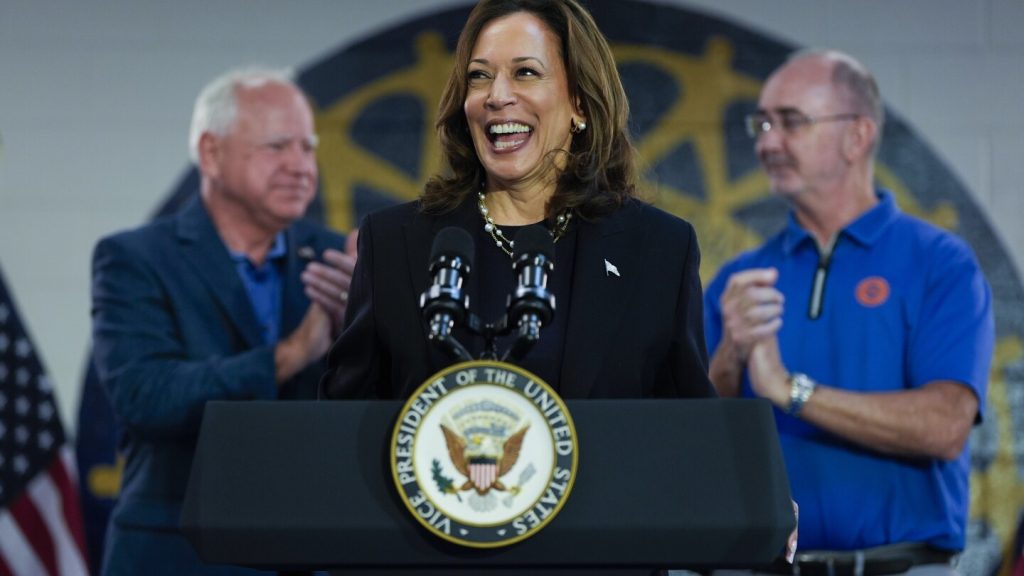In Michigan, Vice President Kamala Harris and former President Donald Trump are making starkly different appeals to workers as they compete for blue wall states with deep union roots. Harris is rallying in union halls alongside powerful labor leaders, emphasizing the importance of unions in protecting the American dream for workers. Her campaign is increasingly concerned about her standing with men in blue wall states like Michigan, Wisconsin, and Pennsylvania, where union leaders could help mobilize voters in a rapidly changing economy.
Recent events, including Harris failing to secure key union endorsements that President Joe Biden received in 2020, have raised concerns within the Democratic Party. The International Association of Firefighters and the International Brotherhood of Teamsters chose not to endorse anyone, citing lack of majority support for Harris among their members. While state-level unions like Michigan’s Teamsters and California’s main firefighters’ union have backed Harris, any division within the labor movement could impact the party’s power at the ballot box.
President Trump has seized on the union non-endorsements to claim support from rank-and-file workers, especially in Midwestern communities that have shifted to the right in response to economic concerns. Trump is framing Harris as a supporter of policies that could send jobs overseas, aiming to capture more votes from non-college-educated white and nonwhite workers in Michigan. His comments criticizing union leaders like UAW President Shawn Fain and praising Tesla CEO Elon Musk have raised concerns about intimidation of workers.
In the 2020 election, Biden narrowly carried blue wall states like Michigan with strong support from unionized voters, who traditionally form a turnout machine for Democrats in the Midwest. However, Biden’s support was polarized along educational and income lines, with Trump winning a majority of non-college-educated white voters in the state. Signs of Biden’s coalition fracturing have emerged among specific groups like Arab Americans in metro Detroit, who may turn away from Democrats due to the administration’s handling of certain issues.
Harris is working to win over union workers by emphasizing the benefits of unions for all workers and highlighting how union wages uplift everyone in the workforce. UAW President Fain, who supported Democrats in past elections, is backing Harris and hoping to secure Michigan as a victory for the party. Trump, on the other hand, is targeting both white and nonwhite workers in Michigan with promises to boost jobs and support workers’ interests. The outcome of the election could determine the future political influence of unions in Michigan and beyond.
As the candidates continue to campaign in Michigan and other blue wall states, the role of unions and workers in shaping the political landscape will be pivotal. The contrast between Harris and Trump’s appeals to workers reflects a broader struggle within the Democratic Party to maintain unity and appeal to a diverse electorate. Union endorsements and support could play a crucial role in determining the outcome of the election, with Michigan serving as a battleground where the future of organized labor may be at stake.


